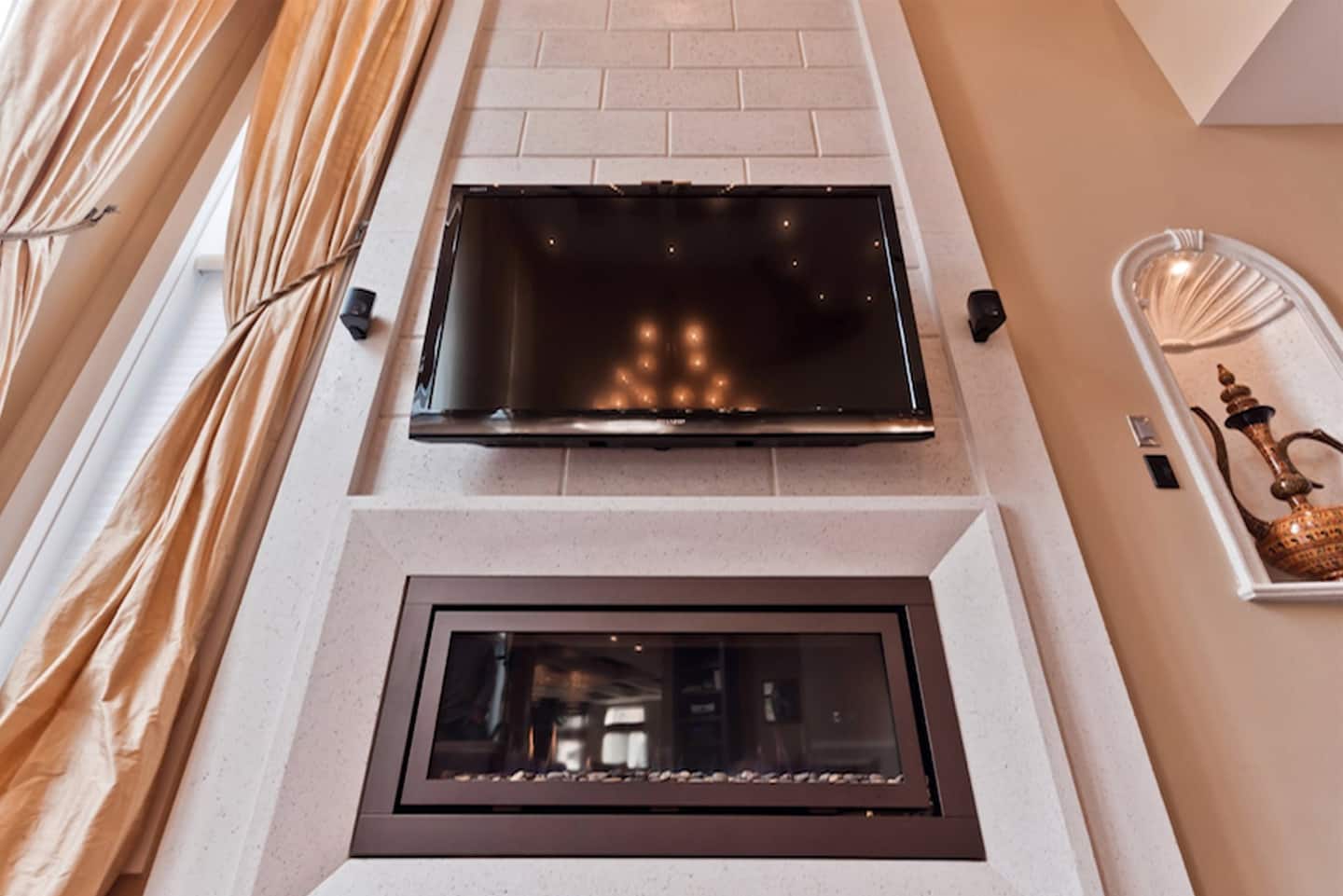Tip 1: Tune up your Heating System
Calling in a professional to inspect your furnace or heat pump is a sure way to keep your family comfortable and warm as the cold season moves in. Taking the initiative to book your appointment and inspection early can save you both time and money. A professional can check your system top to bottom making sure that it is both clean and in good working order, the inspection will be sure to test for any carbon-monoxide leakage as well, important to your households health and safety.
Tip 2: Reverse your Ceiling Fans
This is a simple way to maximize the spread of hot air through your house. Most home owners turn to their ceiling fans to cool off during the hot months of the year but it can also circulate hot air through your house when you reverse the fan blades to spin in a clockwise direction. The fan will produce an updraft and push down effect, and since hot air rises this will help keep it from escaping the room so quickly. Keep this in mind through the season and you could see the difference in your heating bill.
Tip 3: Leave your Tree Pruning till Winter or Spring
Although you may be tempted to prune and trim your hedges and shrubs you should refrain. Specialist advise to be patient and not touch your plants until the winter when they have had sufficient time to become dormant. The only exception to the rule should be to trim those trees and hedges that threaten power-lines and/or the structure of your home. Leaving weak dead branches can cause serious problems in harsher colder temperatures. A quick inspection is all you need to do before calling an expert.
Tip 4: Inspect your Roof
A quick visual inspection can make all the difference in avoiding a disastrous fall and winter season. Take a look for loose/broken or missing shingles that may leak, check the flashing seals around any ventilation and chimneys as well. This is a small, fast, and relatively cheap repair that can save you some serious money in the long run. If your roof is flat composed of asphalt and pebbles make sure to blow off access foliage and pine needs; these retain moisture and could cause problems if left to stew over the wet winter season, however make sure not to sweep pebbles aside as this will leave the asphalt exposed to harsh weather.
Tip 5: Seal your Windows and Doors
Check for gaps between windows, siding, and door frames that cold air can creep into. Any gaps bigger than dime may need to be resealed. Make sure the product you choose is appropriate to the surface and environment.
Tip 6: Clean your Gutters
Leaving your gutters full of leaves can cause major problems in the winter if left unattended. Take the time to clean them out and make sure that your gutters are strapped and solid for the heavy snowfalls. Also taking time to attach extensions onto your downspouts will help keep added moisture and ice build up around your foundation, saving you from cracks and abrasions.
Tip 7: Test your Sump Pump
Test the level of your sump pump by pouring a couple gallons of water slowly into the sump pit until it turns on. You should do this regularly every few months, especially after a long dry summer season.
Tip 8: Turn off Exterior Faucets, Store your Garden Hoses, and Drain your Irrigation System
Leaving faucets on can cause a build up of water in your pipes. This water will freeze and start to expand over the winter, this will cause your pipes to crack and burst. Your best bet is to disconnect all hoses and drain the remaining water and shut them down for the season. Hint: In older houses the shut off valve tends to be inside. As for your irrigation system; your best bet is to call a professional to drain the system so to avoid freezing and leaks.
Tip 9: Put your Rake away and Get out your Mower
Recent studies show that cutting your leaves and spreading them rather than raking them up and bagging them can do great things for your lawn. Take your bag off the lawn-mower and let the leaves mix in with your blades of grass. As they decompose they will nourish your lawn through fall and over the winter.
Tip 10: Clean your Chimney Early for Santa
Before you throw another log on the fire it is very important to have your chimney cleaned and inspected. This preventative measure can will prevent the threat of chimney fires and carbon monoxide from spreading into your house.


